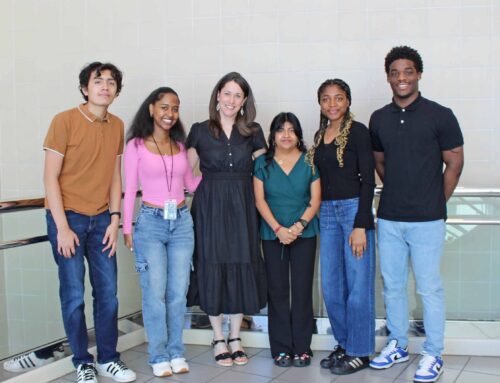 A couple years ago I was at a writer’s conference where Gene Weingarten spoke about the time he almost accidentally left his child in the car all day. It prompted him to write the 2009 Pulitzer-winning piece Fatal Distraction, which is about parents who accidentally kill their child by leaving him or her in a hot car.
A couple years ago I was at a writer’s conference where Gene Weingarten spoke about the time he almost accidentally left his child in the car all day. It prompted him to write the 2009 Pulitzer-winning piece Fatal Distraction, which is about parents who accidentally kill their child by leaving him or her in a hot car.
Finally, today, I actually read the whole story. The first time I tried, I got to the part — about six paragraphs in — that begins to describe in detail the physical impact on the body of a baby or child experiencing hyperthermia.
Later, I read through to the part about Andrew Culpepper, whose son baked in a hot car; he was not prosecuted, but he is serving a life sentence of unimaginable guilt, shame and loneliness.
I decided to read the whole article last Friday, when a Dallas ISD teacher reportedly, allegedly, left her child in the car to die while she went to work at a Pleasant Grove elementary school. My cousin, a Dallas police officer, was one of the first on the scene. When they went in to question Vibha Marks (after, unbeknown to her, a teaching assistant had called 9-1-1, smashed Marks’ car window and attempted, unsuccessfully, CPR on Marks’ 1-year-old) she asked if her child was OK? Did something happen at day care?
It seemed to observers that teacher Vibha Marks initially believed her daughter was at day care, while she actually was dying of hyperthermia in the school parking lot.
Why am I doing this? Reading Weingarten’s article makes me physically ill. Writing about this is uncomfortable, too. But there are two important points about Weingarten’s article, gleaned from his extensive research, that I want to point out.
1) Everyone believes this would never happen to them.
Clinical Psychologist Ed Hickling: “Humans have a fundamental need to create and maintain a narrative for their lives in which the universe is not implacable and heartless, that terrible things do not happen at random, and that catastrophe can be avoided if you are vigilant and responsible.”
The comments section following stories about Marks and others like her are full of anger and vitriol. That is because we need to assert that we are not vulnerable to this sort of thing, Hickling told Weingarten.
“We want to believe that the world is understandable and controllable and unthreatening, that if we follow the rules, we’ll be okay. So, when this kind of thing happens to other people, we need to put them in a different category from us. We don’t want to resemble them, and the fact that we might is too terrifying to deal with. So, they have to be monsters.”
2) But the truth is, it could happen to anyone.
What kind of person forgets and accidentally kills a child?
Weingarten: The wealthy do, it turns out. And the poor, and the middle class. Parents of all ages and ethnicities do it. Mothers are just as likely to do it as fathers. It happens to the chronically absent-minded and to the fanatically organized, to the college-educated and to the marginally literate. In the last 10 years [published 2009], it has happened to a dentist. A postal clerk. A social worker. A police officer. An accountant. A soldier. A paralegal. An electrician. A Protestant clergyman. A rabbinical student. A nurse. A construction worker. An assistant principal. It happened to a mental health counselor, a college professor and a pizza chef. It happened to a pediatrician. It happened to a rocket scientist.
The summer before Weingarten wrote the piece, it happened three times in one day.
Now it has happened here in Dallas. Only by being humbly aware of our vulnerability can we make sure it does not happen again.
[more Washington Post]WANT MORE? Click to sign up for the weekly newsletter and be the first to know what’s happening in our neighborhood.





